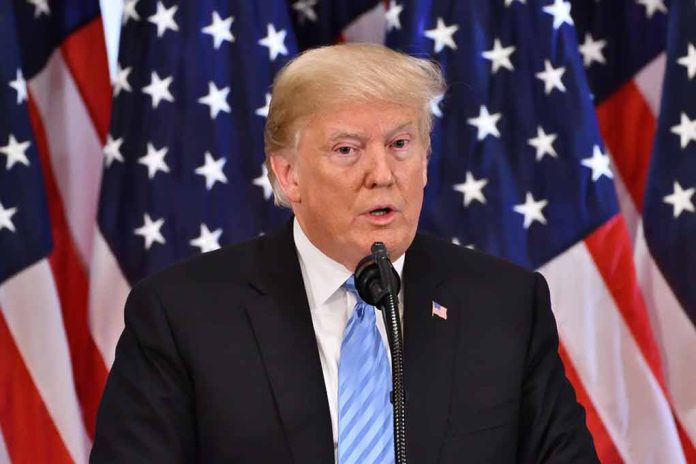
South Africa’s new land expropriation law has sparked international controversy and a strong response from U.S. President Donald Trump.
Top Takeaways
- Trump announced the suspension of U.S. funding to South Africa over the new land law.
- South African President Ramaphosa defends the law aimed at addressing racial disparities.
- The law allows for land expropriation under certain conditions.
- The decision has prompted mixed reactions and potential legal challenges.
US Suspends Funding Due to Land Law
President Donald Trump announced a halt to future U.S. funding for South Africa following the signing of a controversial land expropriation law by President Cyril Ramaphosa. The law enables the state to expropriate land to rectify historical racial disparities in land ownership. Trump’s decision highlights global tensions, asserting that the new law constitutes a human rights violation. Trump’s announcement has generated widespread debate, with some questioning the constitutionality of the law in South Africa.
The suspension includes a 90-day freeze on foreign aid while permitting humanitarian assistance. In 2023, the U.S. provided South Africa with nearly $440 million in aid, largely for health initiatives like the Pepfar program. Concerns about the future of these programs linger, especially as discussions between the two governments continue to unfold.
South Africa’s Defense of the Expropriation Law
President Ramaphosa, who recently signed the law into effect, advocated for it as a legal mechanism to address and mend the racial imbalances in land ownership created by apartheid. According to reports and public statements, the law aims to ensure equitable compensation for affected parties and promotes access to natural resources, relevant mainly where the land remains unused or abandoned. Cyril Ramaphosa stated that South Africa adheres to constitutional laws, emphasizing no land confiscations have occurred thus far.
“South Africa is a constitutional democracy that is deeply rooted in the rule of law, justice and equality. The South African government has not confiscated any land.” – Cyril Ramaphosa
Ramaphosa has expressed optimism in working with the U.S. to clarify the intentions of the legislation and foster a “better and common understanding” on the matter. The South African foreign ministry echoed these sentiments, hoping for a comprehensive understanding during the forthcoming investigations.
Implications and Future Considerations
The expropriation law faces opposition domestically, including strong objections from the Democratic Alliance and entities like AfriForum. Critics fear potential economic consequences akin to neighboring Zimbabwe’s experiences if the law is similarly enacted there. Questions loom about its constitutionality, with some coalition party members contemplating legal challenges. Input from global figures like Elon Musk accentuates the heated debate, tagging the law “openly racist.”
This legal decree signifies a pivotal moment for South Africa as it grapples with its apartheid legacy and the quest for equality. Its success, or failure, may have enduring implications, not only on socioeconomic fronts but also on South Africa’s international relations.
Sources:
- Trump to Suspend Funding to South Africa Over Land Expropriation
- Trump threatens to cut funding for South Africa over land policy
- Trump plans to cut US funding to South Africa over land law. Musk has also criticized the country




